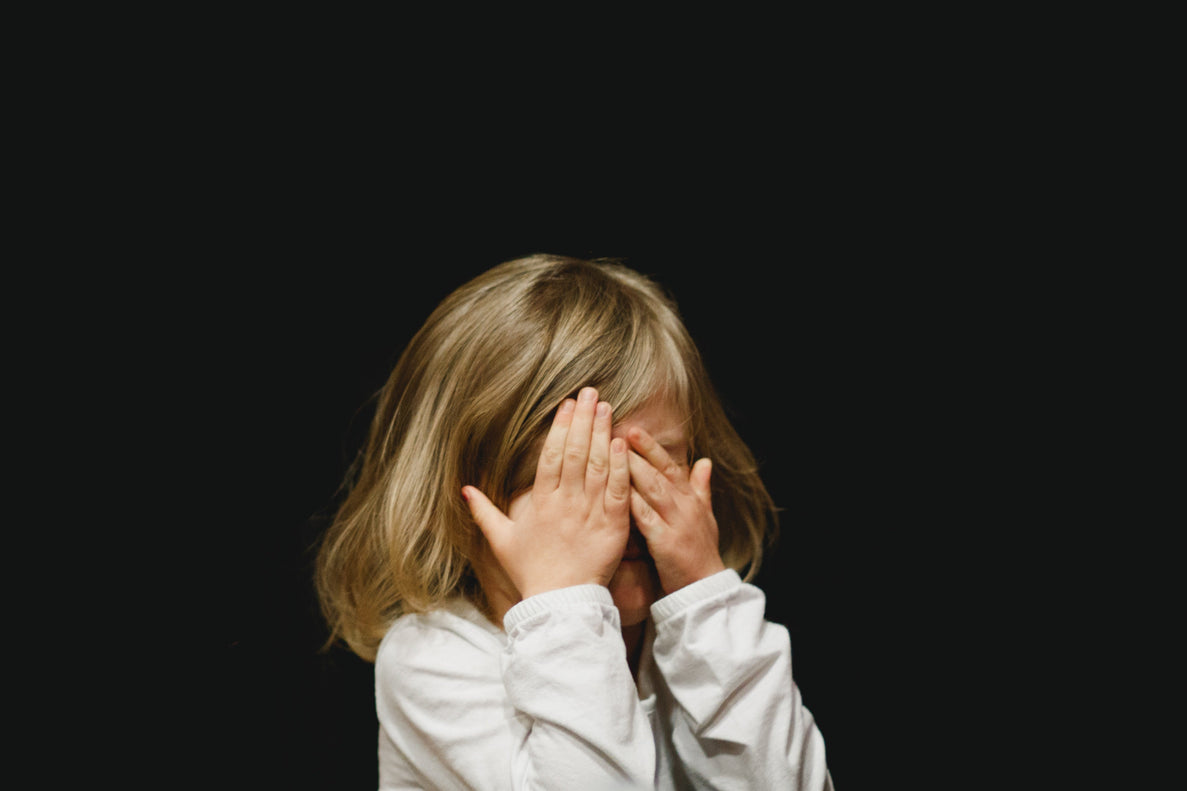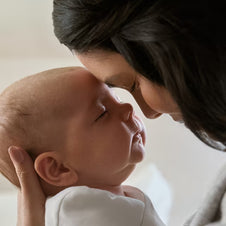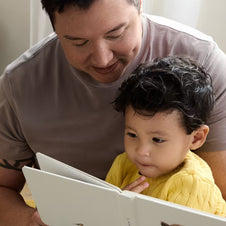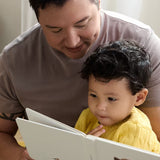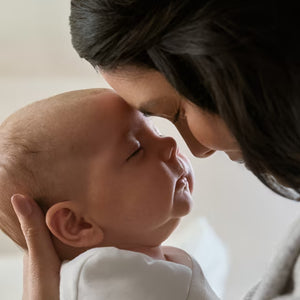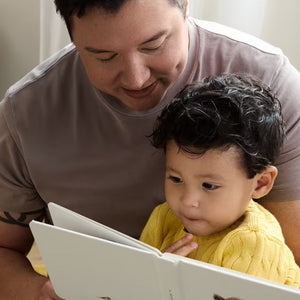When nighttime fears develop – like being afraid of shadows or the dark – it can be difficult to understand where those fears come from and how best to help your toddler. I want to share with you why these fears happen and how to guide your toddler through being afraid of the dark.
Taking Cara Babies Classes
At what age do children become afraid of the dark?
Most of the time, I see fear of the dark start to appear around 2-2.5 years or older. As a toddler’s imagination begins to really develop rapidly between 2 and 3 years old, the line between fantasy and reality is blurred, and this is when we see the first fears of the dark begin.
If you're worried that your child under age 2 might be afraid of the dark, please check out my blog all about night lights and baby sleep for strategies to use with your little one.
What causes fear of the dark?
Several factors can contribute to your toddler being afraid of the dark. Overtiredness can cause the release of stress hormones(1) in your toddler’s body that can increase anxieties like being afraid of the dark. On the other hand, if your toddler is undertired at bedtime, this can lead to her lying in bed with her imagination running wild as she tries to fall asleep.
Seeing scary things in books and on screens can contribute to fear of the dark for your toddler as well. If your child seems afraid, pay attention to what he's watching. Even seemingly “harmless” characters like the Grinch or Disney villains can cause that imagination to run wild. For some young children, these characters can appear scary. To prevent these images from causing bedtime fears, I suggest limiting screen time – especially within the hour before nap or bedtime.
It’s also good to be mindful of what shows, podcasts, music, etc. you have playing in the background. Again, something that seems harmless to us can increase fears around the dark for toddlers.
How do I help my toddler if they’re afraid of the dark?
There are several ways you can help your toddler if he’s scared of the dark.
-
Review your toddler’s daily schedule to see if she’s overtired or undertired at bedtime.
-
Try adding a red light to your toddler’s bedroom. A night light is a great tool to help make your toddler’s room seem less scary.
-
Give your toddler a lovey or favorite stuffed animal. Research has shown(2) sleeping with a comfort object can help decrease nighttime fears and sleep problems.
-
Teach your child what YOU do when you feel afraid. For example, if you pray, pray out loud together. If you use breathing exercises to calm down, show him how to breathe deeply by putting his hand on his chest and feel the way it expands, and then pretend to slowly blow out birthday candles.
-
Spend some time in the dark together to make it fun! Read a book together with a flashlight or make shadow puppets on the wall. This time together helps your child gain confidence about being in the dark.
-
Try reading children’s books where the characters are afraid of something or someone. Children’s books are wonderful tools for allowing your child to explore a topic and start a discussion about what scares her.
-
Be consistent with how you handle your toddler’s nighttime fears. Don’t let bedtime fears or nightmares be the reason your sleep plans fall apart. Check out my Toddler Sleep Training class for more help.
Is Monster Spray a good idea to help if my toddler is scared of the dark?
I know, as parents, we want to do all we can to ease our children’s fears and giving them “Monster Spray” can seem like a quick way to help them if they’re afraid of the dark. However, using "monster spray" can actually reinforce the idea that monsters are real and something they should fear. Instead of using monster spray, it’s typically more effective to focus on showing your toddler why and how he’s already safe. Look at the shadows with him and show him what’s really there: "It's not a monster at all! It's actually your favorite toy truck." Check the closet and look under the bed together; show your toddler how safe his room is. You can also continue to read stories about characters who are afraid and discuss how they overcome their fears.
What is the best night light for a toddler afraid of the dark?
I have a blog all about adding a night light to your toddler’s room. I find the best night lights are dim and red. Red lights are shown to be less disruptive to sleep. An Ok-to-Wake Clock can work too: use red for bed, and green for when it's time to get up and go.
Can babies have nightmares?
Your child’s imagination begins to develop around 2 years old, and often, this is when we see the beginning of fears about shadows, the dark, or imaginary things. Every child is different, but it’s very rare to see children under 2 years old struggle with nightmares or have nightmares that interrupt sleep. If you're seeing sleep disruptions under age 2, there's likely another culprit. Check out this blog to read about why your baby isn't sleeping through the night.
Why does my toddler have nightmares?
There can be several reasons why your toddler is having nightmares. Nightmares often start when your child’s imagination begins to develop. When your toddler sees or hears something they perceive as scary or upsetting, their imagination takes over and can cause nightmares. Nightmares can also be caused by stress, trauma, or a sleep schedule that is not age appropriate. And sometimes, nightmares can happen for no reason at all.
How can I help my child when they have a nightmare?
It’s so hard as a parent to see our child full of fear from a nightmare or the dark. Our instinct may be to bring them into bed with us, but my advice is to consider another strategy instead. Sometimes, when we pull a child into our bed after a scary dream, we are unintentionally reinforcing the idea that their room is a place to fear. Try helping your child back to sleep in their own room after a nightmare to show them that their room or bed is not scary, but rather a perfectly safe place to sleep.
When your child has a nightmare, stay calm and offer him comfort and reassurance to help him feel safe enough to go back to sleep. During the day, provide an opportunity to talk about bad dreams. Acting out ways to overcome the fear during pretend play or reading books together on fears are two great ways to help.
Expert Tip: Avoiding overtiredness and being mindful of what your toddler watches are two BIG ways to prevent nightmares before they happen.
What is the difference between nightmares and night terrors?
Nightmares typically happen during the second half of the night, and children can typically recall what their nightmare was about or what they found scary.
Night terrors usually happen in the first half of the night. Typically, night terrors don't begin until children are around 3-5 years old. Night terrors can be triggered by overtiredness, stress, and even certain medications. Some common signs of night terrors are:
-
Screaming
-
Thrashing around
-
Eyes are open and glassy
-
Sweating
-
Confusion
Understand that during the night terror, your child is completely asleep. It's truly much more scary for you as a parent than for your child. Children are unaware that a night terror is happening, and because of this, they won't be able to remember anything about it.
What should I do if my child has a night terror?
Night terrors are something that should be discussed with your child’s pediatrician. Some suggestions you may hear are to keep your little one safe during the night terror, avoid waking them, examine their daytime routine, and avoid screen time prior to sleep, but always talk to YOUR doctor for specifics for YOUR child.
Need more help with toddler sleep?
My Toddler Sleep Training class will teach you everything you need to know about toddlers and sleep. Let me give you step-by-step guidance through a fully-customizable and holistic approach to toddler sleep, tools to keep you emotionally connected to your child as they learn independent sleep, detailed help through toddler naps and quiet time, and so much more. It’s not too late to have a great little sleeper.

